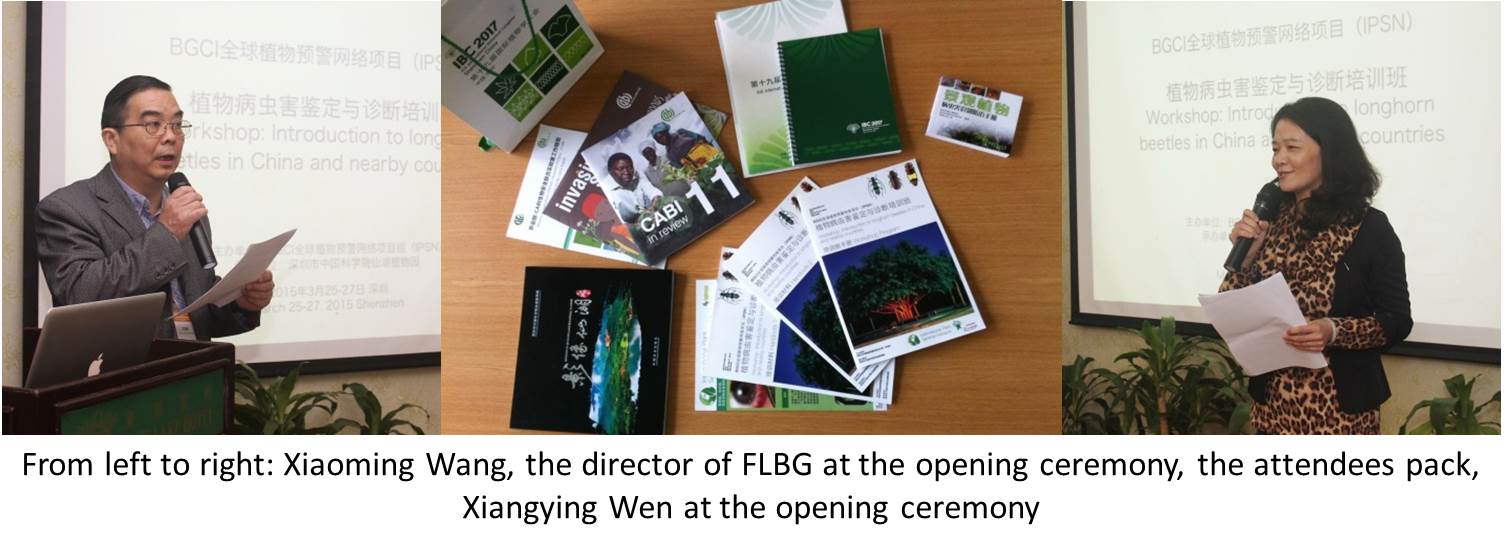1 April 2015 – The International Plant Sentinel Network (IPSN) held a workshop on The Identification and Diagnosis of Longhorn Beetles in China and nearby Countries in the Shenzhen Fairy Lake Botanical Garden and Chinese Academy of Sciences, on March 26-27, 2015. The workshop brought together people working with botanic gardens in plant protection, a first for China. The course was hosted by Botanical Garden Conservation International (BGCI) and organized by Fairy Lake Botanical Garden, Shenzhen and the Chinese Academy of Sciences (FLBG) as part of the IPSN. CABI’s Dr Huanhuan Wan attended and gave a presentation on CABI’s work, including integrated pest management, management of invasive species and the Invasive Species Compendium.

The two-day workshop gave participants from 17 institutions an in-depth introduction to monitoring and surveying techniques used for the identification of damaging plant pests and pathogens. It focused particularly on increasing knowledge of the longhorn beetle family in the South China area. The workshop included information about key identification skills, including demonstrating the use of the IPSN Plant Health Checker; a standard form for recording change in any species of plant.
The first day comprised a number of lectures introducing the workshop and exploring the longhorn beetle family. The second day was held outside where participants were able to search for, and with the help of trainers, identify pests within the garden. The participants also practiced recognizing signs and symptoms of damage, and longhorn beetle management and trapping techniques in the beautiful Fairy Lake Botanical Gardens.
Dr Hui Dong from Fairy Lakes Botanical Gardens said, “Its our great pleasure to host the BGCI and IPSN workshop. This event brought together the plant protection researchers in the Chinese botanic gardens community for the first time. Its an excellent opportunity for us to share plant conservation and protection knowledge and perspective.”
The workshop not only trained the participants in skills surrounding the identification of longhorn beetles, but also provided a valuable opportunity for networking. Attendees were able to exchange their experiences of pest management in their gardens and discuss the future of plant protection in botanical garden communities. A QQ group (chatting tool) has been created to provide a platform for continued communication. It is hoped this workshop could lead to similar events in the future.
For all our latest news, click here.
Related News & Blogs




